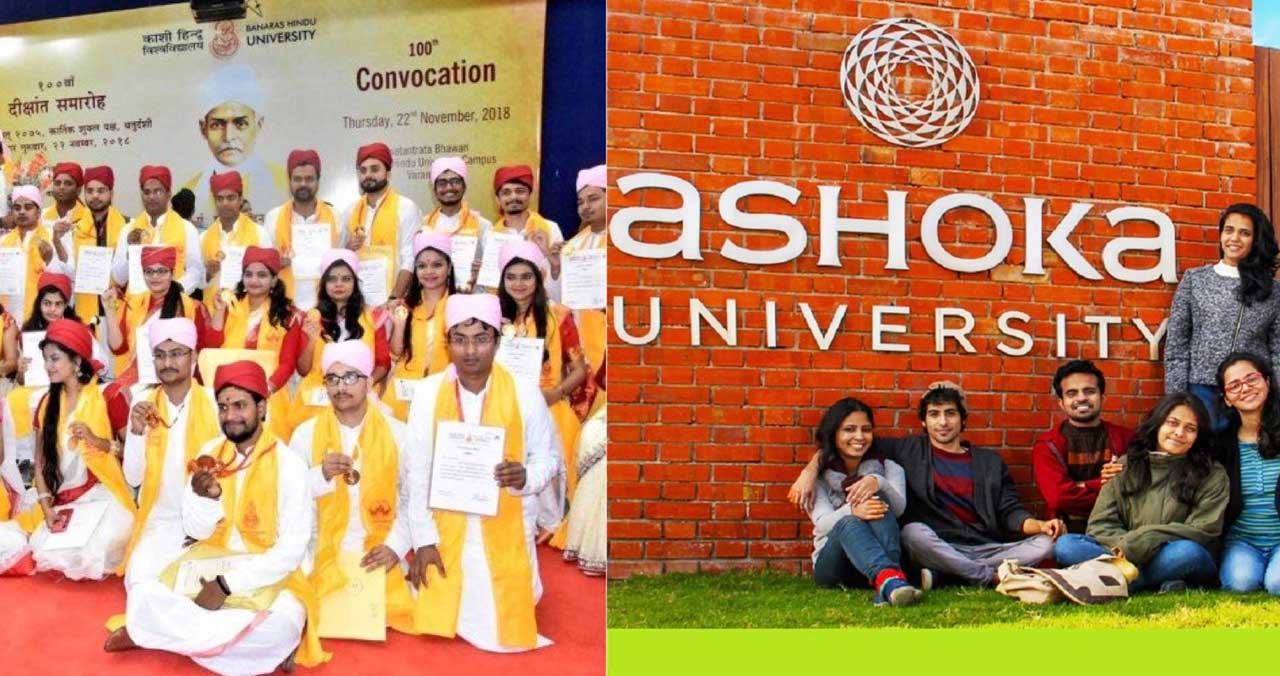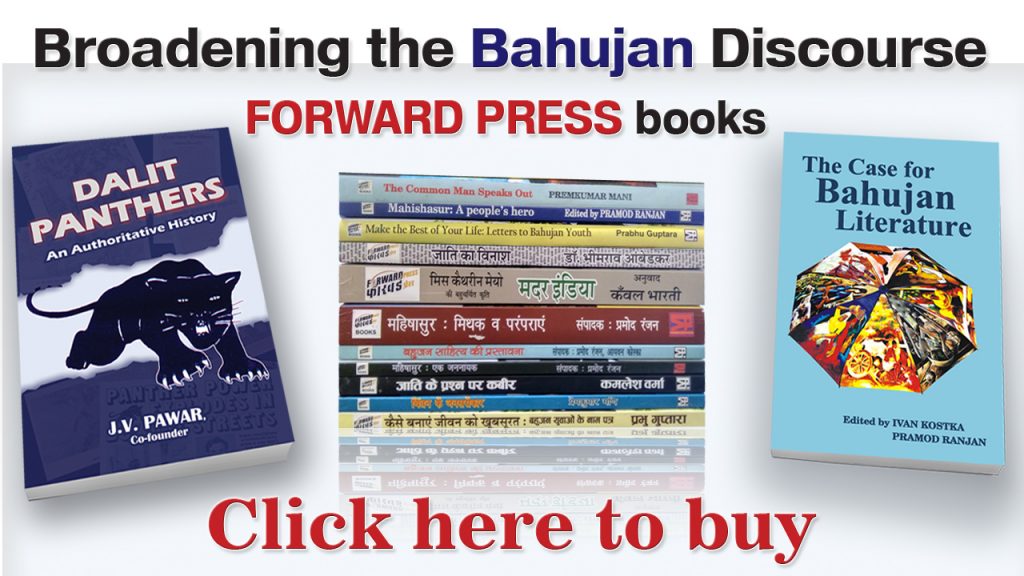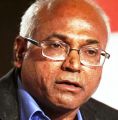The Hindutva school of thought has been completely in control of the nation from 2014 onwards. Narendra Modi and Amit Shah in Delhi and Mohan Bhagwat and Dattatreya Hosabale and other Rashtriya Swayamsevak Sangh (RSS) leaders in Nagpur have been executing a strange ideology of nationalism after they came to power. Theoretically, the Hindutva school of thought has propagated “Hindu, Hindi and Hindustan” as the short form for its religious, linguistic and nationalist goals. The Hindu, Hindi and Hindustan goal appears as an all-inclusive nationalist goal. The projection has been that it does not exclude historically excluded castes and communities from the spiritual system and educational structures in terms of language and of course from the national resources if they are Hindus. It has always treated Muslims and Christians as the other.
The Hindutva ideological forces came to power with the support of big industries and big business houses, which have been entering into the education business – school, college and university – in a big way from the mid-1990s liberalization onwards. A decade later, in Sonipat, Haryana, the state government purchased a massive amount of land to be allocated for the private educational sector. It was named as Rajiv Gandhi Education City. It is here that the costliest private English-medium universities, touted as offering world-class higher education, came up. Now, the so-called best liberal arts and basic science universities, Ashoka University and O.P. Jindal Global University, have made it their home. These universities do not implement the reservations that the public universities are Constitutionally mandated to implement.
The character of these universities is very different from the likes of Jawaharlal Nehru University, Delhi University, Hyderabad Central University and Aligarh Muslim University, which are required to implement central educational laws and norms.
The private universities evolve their own syllabus and teach in more sophisticated, British-American English so that students of these universities will be able to compete in the global market. The teachers and students live in an anglicized environment on the campuses. The first generation of educated poor Dalits, Adivasis and OBCs, taught in a regional language, cannot even enter those campuses.
The universities like JNU, Delhi University and Hyderabad University provided quality education in an environment where the first-generation regional-language-educated youth also gradually picked up that quality education and English language. There is no such atmosphere in the private universities. We must understand that the Indian civil society that produces the student mass is not the USA or UK. India should more reasonably compare itself with China, though China’s political system is different. If we weaken the best government universities and promote private higher education the poor will get frustrated sooner than later. In the central public universities, the Hindutva nationalists are pushing for more and more Hindi and also their “pure-nation-centred” Hindutva syllabus. The pliable academicians appointed as vice-chancellors appointed by the central government are bound to appease the central government by imposing its ideological agenda on the central universities.

Weakening the government-owned educational institutions and encouraging the private institutions to educate the rich for foreign markets is not nationalism. India is not a nation of a single non-English national language like China or Japan. Hindi is not like Mandarin or Japanese. Opposing the use of the English language as the medium of teaching and learning in public institutions and allowing it to flourish in private institutions is a dangerous method that over a period of time will lead to Indian English becoming the new Sanskrit – a preserve of the few. The Shudra, Dalit and Adivasi intelligentia is not in a position to see the danger of this politics over the medium of instruction and syllabus by the Hindutva forces. There is no resistance from the academic bodies.
Banaras Hindu University, the Hindutva school’s brainchild, now has classes mostly in Hindi and allows both post-graduate and undergraduate students to take their exams in Hindi and English. But most students take their exam in Hindi and also write their dissertations in Hindi. This university, in the past 30-40 years, has not produced many intellectuals who could influence our education system. On the contrary, JNU, Delhi University and Hyderabad University have produced scholars, civil servants and politicians of visible stature. If the present trend of de-standardizing them continues they will turn into ordinary so-called nationalist universities.
Interestingly, the Hindutva school of thought is for massive privatization in industry, agriculture and education. Their push for privatization in the industrial economy is well known. They have also decided to privatize agriculture through new laws, against which the farmers have been fighting. Their policy on higher education has significant bearing on the future. The Ministry of Human Resource Development and the University Grants Commission are operating in two opposite directions. The private educational institutions are being allowed to be globalist (not nationalist) and the government-owned universities are being pushed into substandard “pure nationalist” ways. In a globalized world, such a regionalized education system would again make the poor Dalits, Adivasis and OBCs immobile and cause them to remain substandard.
In all of the central public universities, the Indian government controls the syllabus, language and organization. Global standards or competitiveness is not the focus there. The focus of Hindu nationalism is ancient Hindu (not Indian) knowledge and its goal is to do away with the English medium of instruction and learning. For example, while teaching Political Thought, there is an attempt to reduce the European Thought component and to let Indian Vedic, Upanishadic, Thought take its place. Exclusion of Buddhist Thought is quite conspicuous.
Even in universities like JNU and Delhi University the focus is not on improving the English-speaking and English-writing skills of students and helping them acquire globally competitive knowledge. Rather, it is on confining them to Hindi and Hindutva ideology. Even China is not so narrow-minded in its attitude to education.
The recent incident of Pratap Bhanu Mehta’s resignation and the subsequent debate that followed in Ashoka University also showed how teachers who have academic visibility have left the central universities like JNU and Delhi University and joined private universities confident that their global approach to education will be safe there. But all socially concerned academicians who are leaving the top government institutions and joining private universities must think again. Private universities, without representation of students and teachers from the poor sections, middle classes and historically oppressed castes, do not serve the mass cause in India. Just teaching the rich who can pay has no intellectual stimulation, at least in my view.
Forward Press also publishes books on Bahujan issues. Forward Press Books sheds light on the widespread problems as well as the finer aspects of Bahujan (Dalit, OBC, Adivasi, Nomadic, Pasmanda) society, culture, literature and politics. Contact us for a list of FP Books’ titles and to order. Mobile: +917827427311, Email: info@forwardmagazine.in)
The titles from Forward Press Books are also available on Kindle and these e-books cost less than their print versions. Browse and buy:
The Case for Bahujan Literature
Dalit Panthers: An Authoritative History







